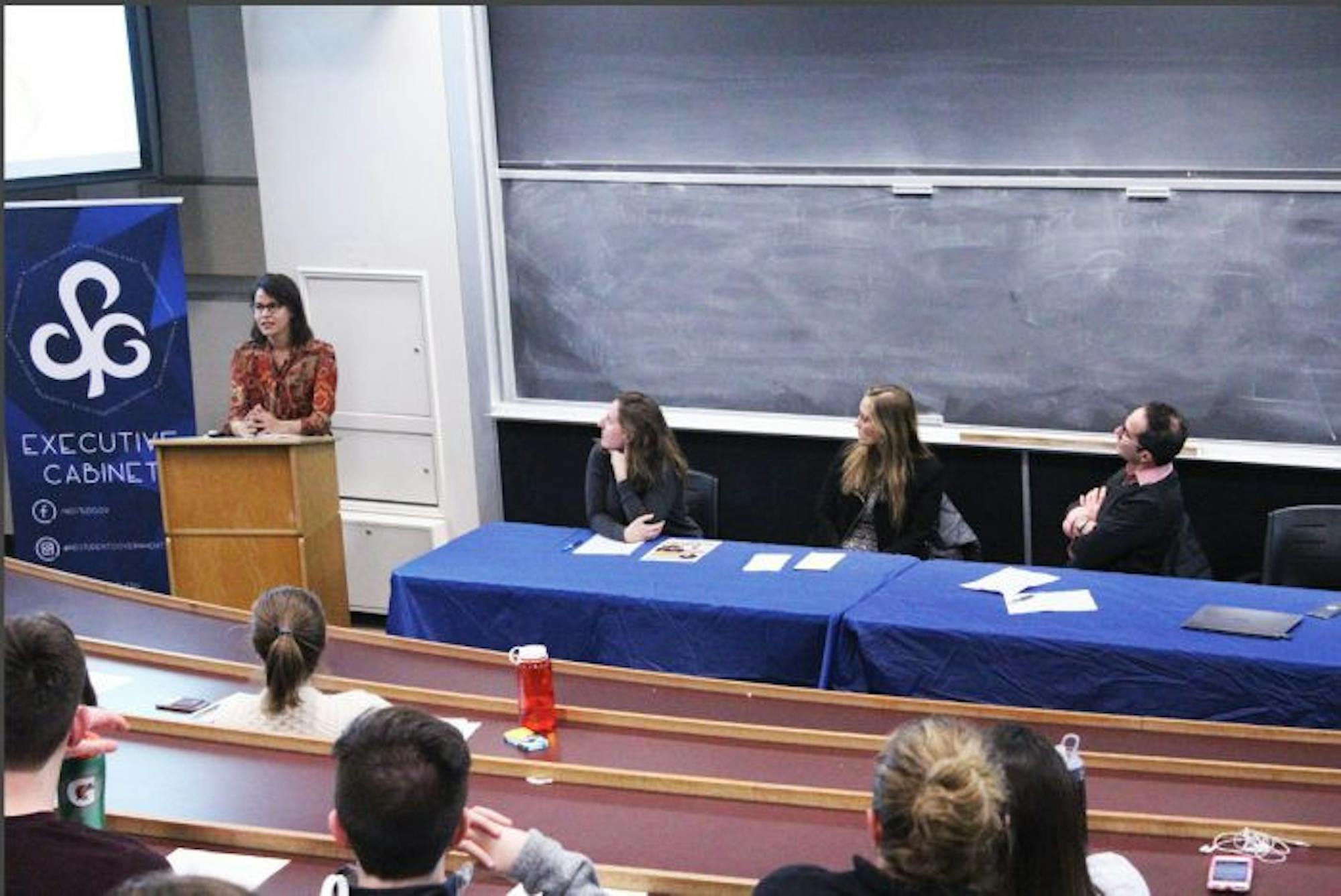An emergency panel discussed the ongoing humanitarian crisis in Myanmar (Burma) on Tuesday night. The panel focused on the persecution of the Rohingya minority group by the Myanmar government and the resulting refugee crisis. Soldiers are reported to have committed massacres, rape and mass burnings of villages and homes. More than 620,000 Rohingya have left Myanmar for refugee camps in Bangladesh, according to a pamphlet distributed at the panel. Of these refugees, 60 percent are children under the age of 17, the pamphlet said.
“[Myanmar is] an extremely diverse country, which has 135 different ethnicities,” graduate student Dorottya Pedryc said.
The majority of the Rohingya, of which there are around 1 million people, live in the Rakhine state on the western edge of the country, assistant professor of global affairs Susan Ostermann said. The Rohingya living in Myanmar are not classified as citizens by the Myanmar government, but as illegal immigrants.
Although they are recognized as illegal immigrants, “the fact is they actually arrived to the country 2000 or 3000 years ago, according to scholars,” Pedryc said.
The most recent crisis has been ongoing since August, “when an insurgent group associated with the Rohingya carried out some limited attacks against state security forces,” associate professor of political science, Ernesto Verdeja said.
“The response has been an overwhelming use of violence,” he said of the actions taken by the Myanmar government and military.
Pedryc said around 240 Rohingya villages have been destroyed in recent months as a result of this violence.
“In September of this year, the U.N. high commissioner for human rights, Zeid Ra’ad Al Hussein, referred to what’s going on in this area as a textbook definition of ethnic cleansing,” Verdeja said.
While Bangladesh has “actually done quite a lot” for refugees, Ostermann said, the country still faces certain issues.
“Bangladesh is still incredibly poor, despite the fact that development has lifted income dramatically over the last 10 to 15 years,” she said.
Bangladesh is a small country with a large population, and the addition of refugees is putting an intense strain on the nation, Ostermann said.
While much of the panel focused on the history that has led to this point, as well the status of the current situation, the panelists also discussed how students can get involved and make their voices heard with regards to this crisis and other humanitarian issues.
The first suggestion was that students become more informed on the issues they care about. In addition, panelist and assistant professor of political science Jaimie Bleck gave suggestions for ways in which students could become more actively involved in a solution.
“There is a range of things that you can do: contacting government representatives, raising awareness amongst your peers, amongst your family, continuing to educate yourself … and, finally, raising money,” she said.
Emergency panel discusses Burma crisis
An emergency panel discusses the
An emergency panel discusses the ongoing humanitarian crisis in Myanmar. Due to persecution by the Myanmar government, many Rohingya Muslims have been forced to flee the country.









